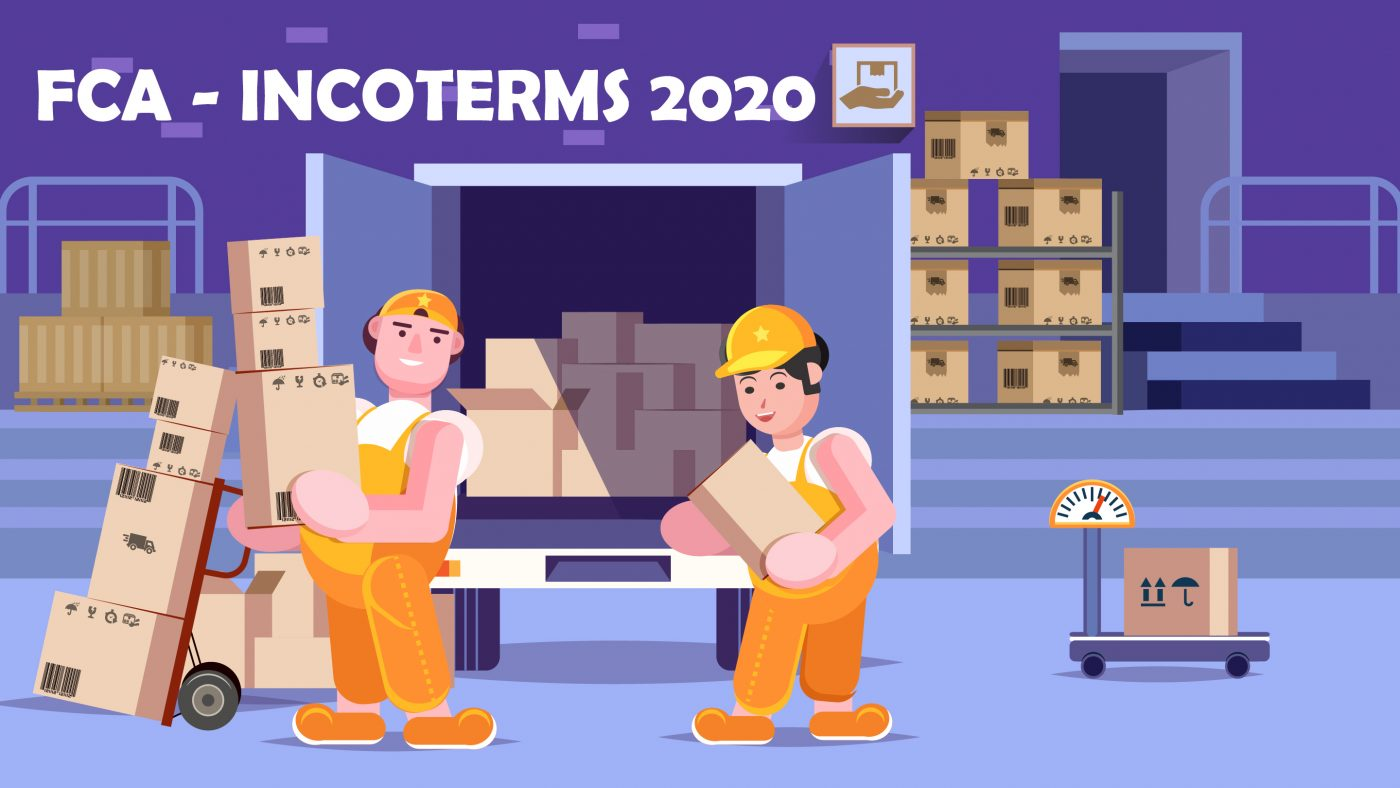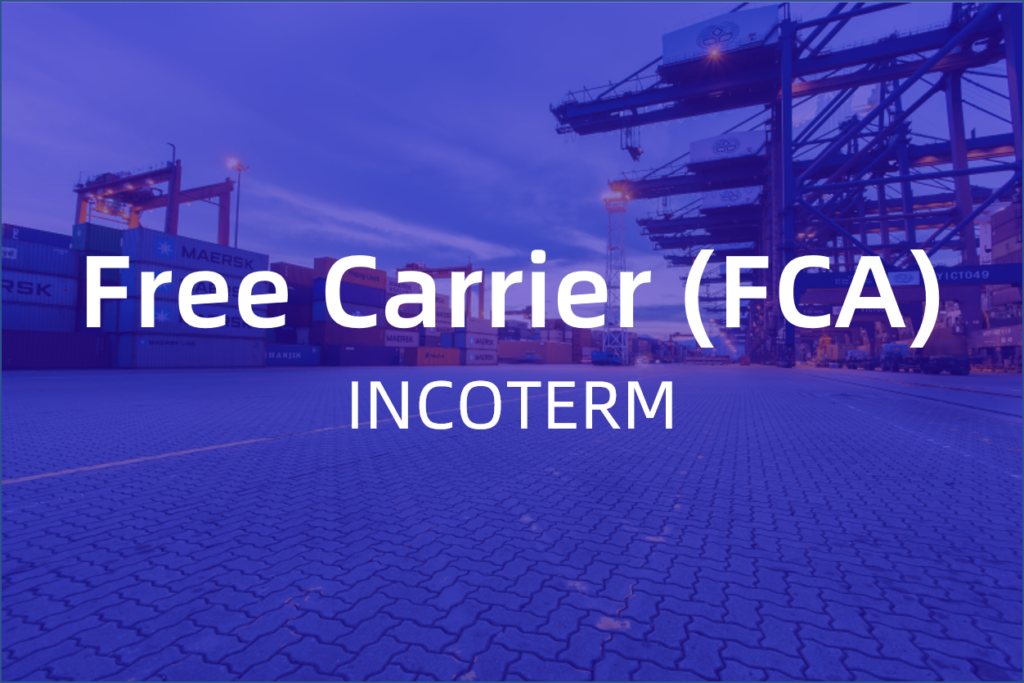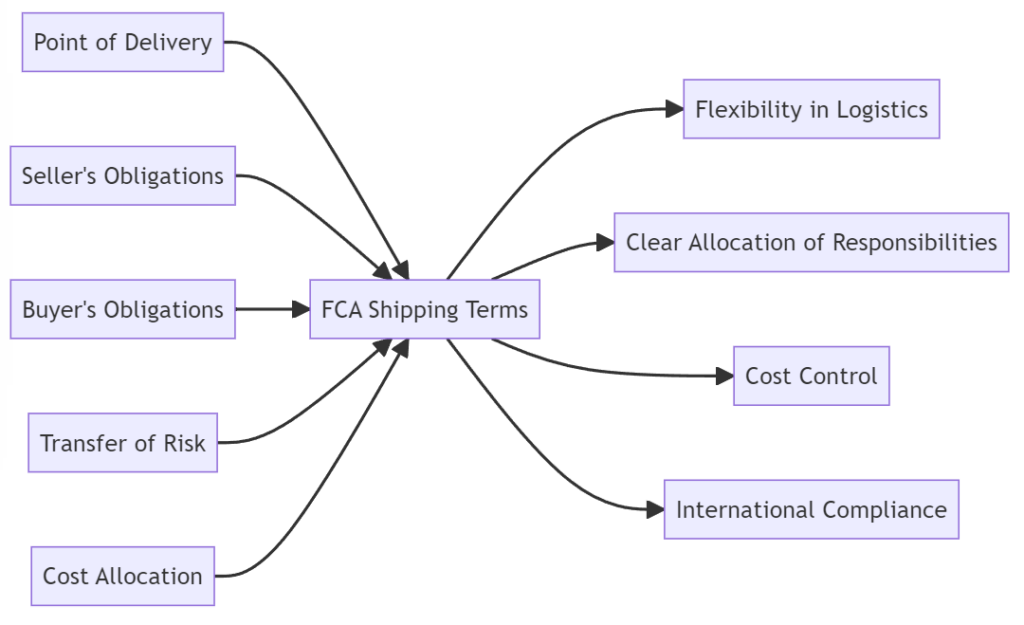
Welcome to our comprehensive guide on Free Carrier (FCA) shipping terms. In this article, we will delve into the intricacies of FCA, providing you with a detailed understanding of its definition, key features, benefits, and how it can streamline your supply chain operations. Our aim is to equip you with the knowledge necessary to make informed decisions and optimize your shipping processes. So, let’s dive right in!
What is Free Carrier (FCA)?
Free Carrier (FCA) is an international commercial term commonly used in the context of international trade and logistics. It represents an agreement between a buyer and a seller regarding the point at which the seller fulfills their delivery obligation. FCA defines the responsibility and cost allocation between the parties involved in the transportation process.

Key Features of Free Carrier (FCA)
1. Point of Delivery
Under the FCA shipping terms, the point of delivery is determined by the agreement between the buyer and the seller. It can be a specific location, such as the seller’s premises, a warehouse, a port, or any other mutually agreed-upon point. The exact location should be clearly stated in the contract.
2. Seller’s Obligations
The seller’s primary responsibility under FCA is to ensure that the goods are ready for export at the agreed-upon point of delivery. This includes tasks such as packaging, labeling, and obtaining the necessary export licenses or documentation.
3. Buyer’s Obligations
Once the goods are ready for export, the buyer assumes responsibility for the shipment. This includes arranging transportation, bearing the costs and risks involved in the onward journey, as well as handling customs formalities at the destination country.
4. Transfer of Risk
The risk associated with the goods transfers from the seller to the buyer at the designated point of delivery. It is crucial for both parties to clearly establish this point to avoid any ambiguity or disputes regarding the transfer of risk.
5. Cost Allocation
The allocation of costs is an essential aspect of FCA. The buyer is responsible for all costs incurred after the goods have been delivered to the carrier, including transportation, insurance, and customs duties. On the other hand, the seller bears the costs associated with preparing the goods for export, loading them onto the carrier (if arranged by them), and any costs prior to the point of delivery.
Benefits of Free Carrier (FCA)
Implementing FCA shipping terms can offer several benefits to businesses engaged in international trade. Let’s explore some of the key advantages:
1. Flexibility in Logistics
FCA provides flexibility in choosing the point of delivery, allowing both the buyer and the seller to select a location that best suits their operational requirements. This flexibility can lead to optimized logistics and reduced transportation costs.
2. Clear Allocation of Responsibilities
By clearly defining the responsibilities of each party, FCA minimizes the risk of misunderstandings and disputes. Both the buyer and the seller have a clear understanding of their obligations and liabilities, which enhances transparency and fosters smoother transactions.
3. Cost Control
Under FCA terms, the buyer has more control over transportation and insurance costs. They can negotiate and select their preferred carriers and insurance providers, enabling them to secure competitive rates and ensure the efficient use of their resources.
4. International Compliance
FCA aligns with the international standards set by the International Chamber of Commerce (ICC) in its Incoterms® rules. By adhering to these standardized terms, businesses can ensure compliance with international regulations and mitigate the risk of non-compliance issues.
Unlocking the Benefits of Free Carrier (FCA) Shipping
In conclusion, Free Carrier (FCA) is a widely used shipping term that offers flexibility, clarity, and cost control in international trade. By clearly establishing the point of delivery, allocating responsibilities, and defining the transfer of risk, FCA streamlines logistics processes and reduces the likelihood of disputes. Understanding the intricacies of FCA empowers businesses to make informed decisions and optimize their supply chain operations.
If you have any further questions or would like to explore how FCA can benefit your specific business needs, feel free to contact us. We are here to assist you in achieving seamless and efficient international trade operations.
